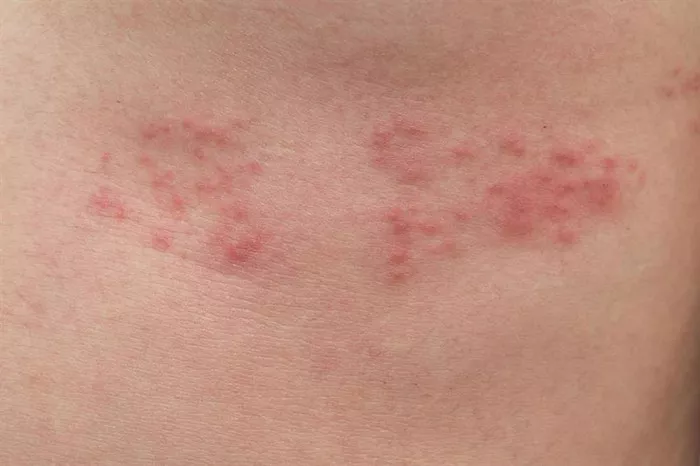Shingles, also known as herpes zoster, is a viral infection that causes a painful rash. It is caused by the varicella-zoster virus, the same virus that causes chickenpox. After a person has chickenpox, the virus lies dormant in the body and can reactivate later in life, leading to shingles. Understanding when shingles occurs can help in prevention and treatment. This article will explore the age groups most affected by shingles, its risk factors, symptoms, treatment options, and preventive measures.
Understanding Shingles
Shingles is a painful condition that usually presents as a red, blistering rash. The rash can occur anywhere on the body but often appears on one side of the torso or face. In addition to the rash, shingles can cause severe pain, itching, and sensitivity in the affected area.
How Does Shingles Develop?
Initial Infection: A person contracts the varicella-zoster virus during childhood, usually through contact with someone with chickenpox.
Virus Dormancy: After recovery from chickenpox, the virus remains inactive in the nerve cells.
Reactivation: The virus can reactivate years later, often due to stress, weakened immune system, or age, leading to shingles.
SEE ALSO: What Are the Major Causes of Shingles?
Age and Shingles
Common Age Groups Affected
Shingles can occur at any age, but certain groups are more susceptible:
Adults Over 50: The majority of shingles cases occur in adults over the age of 50. This age group accounts for more than half of all shingles cases.
People with Weakened Immune Systems: Individuals of any age with compromised immune systems, due to conditions like HIV/AIDS, cancer, or medications such as chemotherapy, are at higher risk.
Older Adults: The risk of developing shingles increases significantly with age. Studies show that about one in three people will develop shingles in their lifetime, with the risk increasing after age 60.
Statistics on Age and Shingles
Under 50: While shingles is less common in younger individuals, it can still occur. Approximately 10% of cases are reported in individuals under 50.
50-59 Years Old: The risk starts to rise significantly. Studies indicate that this age group sees a marked increase in cases.
60 Years and Older: This group sees the highest incidence of shingles, with nearly half of the cases reported in people aged 60 and older. The risk of developing shingles in this age group is approximately 10 times higher than in younger individuals.
Symptoms of Shingles
Initial Symptoms
The symptoms of shingles often begin with a few days of discomfort before the rash appears. Common initial symptoms include:
Burning or tingling sensation: This usually occurs on one side of the body or face.
Localized pain: Many individuals experience sharp or dull pain in the area where the rash will develop.
Fever: Some people may experience a mild fever or fatigue.
Headaches: Headaches can occur alongside other symptoms.
Rash Development
After a few days of initial symptoms, a rash typically develops:
Blistering Rash: The rash often appears as clusters of small, fluid-filled blisters. It may resemble chickenpox but usually appears in a band or a stripe on one side of the body.
Crusting: The blisters eventually crust over and heal within 2-4 weeks.
Postherpetic Neuralgia: Some individuals may experience lingering pain in the area long after the rash has healed, known as postherpetic neuralgia.
Risk Factors for Developing Shingles
Age
As discussed, age is a significant risk factor. The immune system weakens with age, making older adults more susceptible to infections.
Weakened Immune System
Certain conditions and medications can weaken the immune system, increasing the risk of shingles. These include:
Cancer: Patients undergoing chemotherapy or radiation therapy are at higher risk.
HIV/AIDS: These conditions compromise the immune system, making shingles more likely.
Long-term use of steroids: Medications that suppress the immune response can trigger shingles.
Stress and Trauma
High levels of stress or physical trauma can weaken the immune system, leading to the reactivation of the varicella-zoster virus.
Family History
A family history of shingles may increase the likelihood of developing the condition. Genetics can play a role in the immune response to the varicella-zoster virus.
Diagnosis of Shingles
Diagnosing shingles is typically straightforward due to the characteristic rash. A healthcare provider will consider:
Patient history: A history of chickenpox or prior shingles episodes.
Physical examination: Examination of the rash and associated symptoms.
Laboratory tests: In rare cases, a blood test or fluid sample from the blisters may be needed to confirm the diagnosis.
Treatment for Shingles
Antiviral Medications
Antiviral medications can help reduce the severity and duration of shingles if taken within 72 hours of the rash appearing. Common antiviral medications include:
- Acyclovir
- Valacyclovir
- Famciclovir
These medications can help speed up healing, reduce pain, and decrease the risk of complications.
Pain Management
Managing pain is crucial during a shingles outbreak. Options include:
Over-the-counter pain relievers: Ibuprofen or acetaminophen can help alleviate mild to moderate pain.
Prescription pain medication: For severe pain, doctors may prescribe stronger medications.
Topical treatments: Calamine lotion or lidocaine patches can help relieve itching and discomfort.
Corticosteroids
In some cases, corticosteroids may be prescribed to reduce inflammation and pain, especially in severe cases of shingles.
Complications of Shingles
Postherpetic Neuralgia
Postherpetic neuralgia is a common complication of shingles, characterized by chronic pain in the affected area long after the rash has healed. It can significantly impact quality of life.
Vision Problems
If shingles affects the eye, known as herpes zoster ophthalmicus, it can lead to serious complications, including:
- Vision loss
- Infections
- Scarring of the cornea
Skin Infections
The blisters caused by shingles can become infected with bacteria, leading to further complications. Proper care of the rash is essential to prevent infection.
Prevention of Shingles
Vaccination
Vaccination is one of the most effective ways to prevent shingles. There are two vaccines available:
Zoster Vaccine Live (Zostavax): This is a live vaccine recommended for adults over 50. It can reduce the risk of developing shingles and postherpetic neuralgia.
Recombinant Zoster Vaccine (Shingrix): This newer vaccine is preferred as it provides stronger protection against shingles. It is recommended for adults 50 years and older and is given in two doses.
Healthy Lifestyle Choices
Maintaining a healthy lifestyle can help strengthen the immune system, reducing the risk of shingles. Consider the following:
Balanced diet: Eating a diet rich in fruits, vegetables, whole grains, and lean proteins can support immune health.
Regular exercise: Engaging in regular physical activity can help boost the immune system.
Stress management: Practicing relaxation techniques such as yoga, meditation, or deep breathing can reduce stress and improve overall well-being.
Avoiding Triggers
Identifying and avoiding potential triggers, such as excessive stress or illness, can help reduce the risk of shingles reactivation.
Conclusion
Shingles is a painful condition that primarily affects older adults and those with weakened immune systems. The risk of developing shingles increases with age, particularly after age 50. Understanding the age-related risk factors, symptoms, and treatment options is crucial for effective management and prevention. Vaccination is the best preventive measure available and is highly recommended for those at risk. By adopting a healthy lifestyle and managing stress, individuals can further reduce their chances of experiencing shingles. If you suspect you may have shingles, consult a healthcare professional promptly for diagnosis and treatment.
Related topics:


























